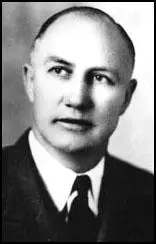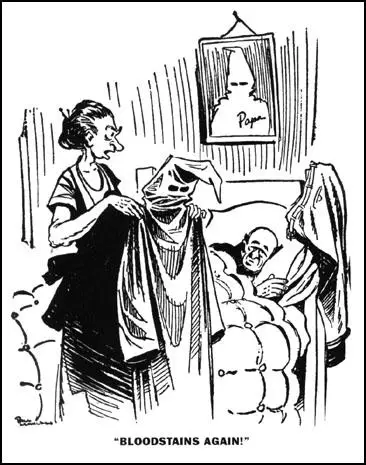Strom Thurmond

James Strom Thurmond was born in Edgefield, South Carolina, on 5th December, 1902. After graduating from Clemson College in 1923, he became a school teacher.
Thurmond, a member of the Democratic Party, was elected to the South Carolina Senate in 1933. He also served as a circuit court judge (1938-41) before joining the United States Army during the Second World War.
Thurmond, who left the army with the rank of Lieutenant Colonel, was elected governor of South Carolina in 1946. At the Democratic National Convention of 1948, Thurmond led the opposition to Harry S. Truman and his Fair Deal proposals that included legislation on civil rights, fair employment practices, opposition to lynching and improvements in existing public welfare laws.
When Truman won the nomination, Southern Democrats formed the States' Rights Democratic Party (Dixiecrats) and Thurmond was chosen as its presidential candidate. He won 1,169,063 votes but came a poor third to Harry S. Truman (24,105,812) and Thomas Dewey (21,970,065).
Thurmond was elected to the Senate in 1954 where he continued to oppose civil rights legislation. He opposed the election of John F. Kennedy as the Democratic Party candidate in 1960 and in 1964 left the party and supported Barry Goldwater against Lyndon B. Johnson.
In 1966 Thurmond was elected to the Senate as a member of the Republican Party. He was re-elected in 1972, 1978, 1984, 1990 and 1996.

